
So, you woke up one fine day and realised you
wanted to express yourself in a deep, meaningful way? You've
come to the right place! Or you were just walking around and
realised you wanted in on this new fad they're calling "poetry".
You've come to the right place too. Or maybe someone told you
that poetry isn't just for people in Victorian tights. They're
right! And you've come to the right place. Or maybe, just maybe,
you think that if you can knock out a halfway decent poem, that
hot chick in your building will sleep with you. Boy, are you
in the wrong place.
For the rest of you, welcome to an short but
intensive course that will change you into poetric geniuses
in 6 steps. After reading each step, close your eyes, think
about it, and say to yourself 10 times in your mind, "I
(your name here) am not a lemming". This will prevent
you from making the common but fatal error of committing suicide
before you have finished the course. Shall we begin? Yes.
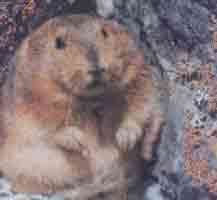 |
| You
are not a lemming! This is not who you are! |
Lesson 1
It is important that the poem be about something. "Something"
in this context can also include "nothing", because
the moment you write about nothing, it becomes something. Existentialists
can, therefore, go stuff a melon. It is not, however, recommended
that you regard a blank page as a poem about nothing, unless
you want to make lots of money, in which case you're thinking
along the right lines.
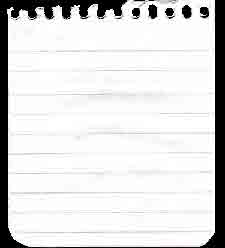 |
The
bleak meaninglessness of life |
Lesson 2
Choose your subject wisely. You must have enough material to
satisfy yourself when you read the finished poem. If you only
have some random words floating around in your head, read my
tutorial on haikus. Although it is recommended that you feel
deeply about the subject, some amount of alienation is paradoxically
required to be able to write good poetry. Some poets write their
first drafts in a turbulent state, and then revise, prune and
shear it when they have their heads about them. The importance
of this technique cannot be underestimated: Shelly's "Ode
To The West Wind" was initially entitled "Dammit,
I Have To Piss" and early drafts of Wordsworth's
"The Solitary Reaper"
include the lines "and I boffed the
bonny horny highland lass"
Lesson 3
Do not stretch a poem out so much that it says everything you
want to say. You must leave room for what critics call "reading
between the lines". One of the longest poems of recent
times was an outpouring of everything the poet ever wanted to
say, and was entitled "In love for
the 25th time again with a low down bitch who broke my heart
and took all my money and now I'm drinking cheap alcohol but
its really romantic and my car's the coolest car on the road
and what the fuck was I thinking when I got this haircut".
This is the kind of writing that will get you shunned by the
poetic community and beaten up by Blues musicians for muscling
in on their turf.
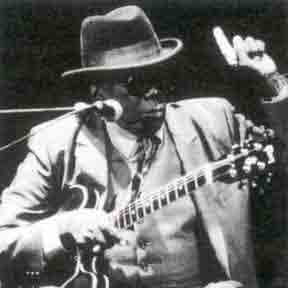 |
You
don't wanna mess with us, boy |
Lesson 4
A poem must have structure. You can choose from the conventional
ABAB, AABB or ABCB structure. Poets played around with combinations
like this for centuries before hitting on the ABBA in the 1970s,
and no one quite remembers what happened next. You may choose
to ignore rhymes altogether; this is a good idea if you want
your poem to be relaxed, insightful and free from the bondage
created by the limitations of the rhyme. Poets call this "free
verse". It's also great if you 're just writing
the poem to get laid and don't want to waste too much time.
Lesson 5
Poetic virtue is a difficult thing to attain, so if you don't
want your poetic license confiscated, you need to shape up,
and fast. There are many tips and tricks you can use here, one
of which is to take an existing paragraph - any paragraph -
and arrange it into a poem. This will give you instant credibility
as a poet, and you can create as many poems as you like in a
day. For example, let us convert an article in the
Encyclopaedia Britannica into a deep poem worth showing
off. This poem is constructed verbatim from an article
on Llamas.
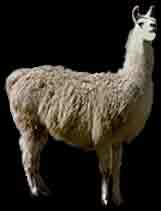
Llama glama
And the smaller alpaca
The two domesticated species
Of the camel family
Indigenous to South America
Are thought by some authorities
To be derived from the Guanco
A 200-lb llama
Can carry 100 to 130 lb
For a three-week trip
Averaging 15 to 20 miles
Per day
When Llamas are exhausted
They lie down
Hiss
Spit
And kick
Refusing to move until relieved
Of some of the weight
Or until rested sufficiently to continue
The journey
Sheep have largely replaced the llama
As a source of wool
See also references under "Llama"
In the Index.
Lesson 6
Background knowledge: there are many kinds of poems... the Metaphysical,
the Pastoral, the Romantic, etc. This can be confusing to a
new poet. Never fear. All poems actually consist of one of two
things:
a) Getting laid
b) Getting high
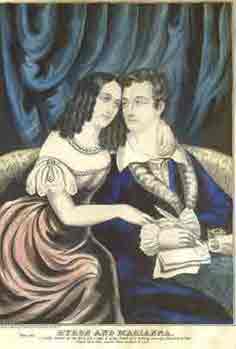 |
|
 |
Byron
and Mariana |
|
Baudelaire
- Hashish Self-Portrait |
Here's a random sampling:
William Shakespeare - O Mistress Mine (getting
laid)
Alexander Pope - Solitude (getting high)
Lord Byron - So, We'll Go No More A-roving (getting
laid)
Sir John Suckling - Why So Pale And Wan? (getting
high)
John Keats - La Belle Dame Sans Merci (getting
laid)
William Wordsworth - I Wandered Lonely As A Cloud (getting
high)
Oscar Wilde - The Harlot's House (getting
laid)
Samuel Taylor Coleridge - Kubla Khan (getting
very high)
Chrisopher Marlowe - The Passionate Shepherd to His Love (getting
laid. With a sheep.)
Robert Burns - To A Mouse (getting high)
Henry Carey - Sally In Our Alley (getting
laid)
Edward Lear - The Owl and the Pussy-Cat (getting
high. Or possibly laid)
Orrick Johns - Wild Plum (getting laid)
Walt Whitman - Leaves Of Grass (getting
high)
Robert Browning - My Last Duchess (getting
laid)
A.E. Housman - When Smoke Stood Up From Ludlow (getting
high)
Congratulations!!
you are now a poet. Sooner or later, people will see you writing,
and will ask you, "Are you a poet?" On no occasion
must you EVER say "Yes", as this will automatically
disqualify you. Here, instead, are some approved answers.
"Aren't we all?"
"I write because, if I don't, I think I shall go mad"
"I guess I'm just looking for my muse" (to be said
to attractive member of opposite sex)
"Don't try and classify me"
"I don't know, I guess I just see things differently...
take the llama, for example"
"Maybe, but I can still kick your ass" (to be said
to member of same sex, if male)
"Let's make hot, steamy love" (to be said to member
of same sex, if female)
"I (your name here) am not a lemming"
 |
| Dammit,
don't define me! This is not who I am! |
|



